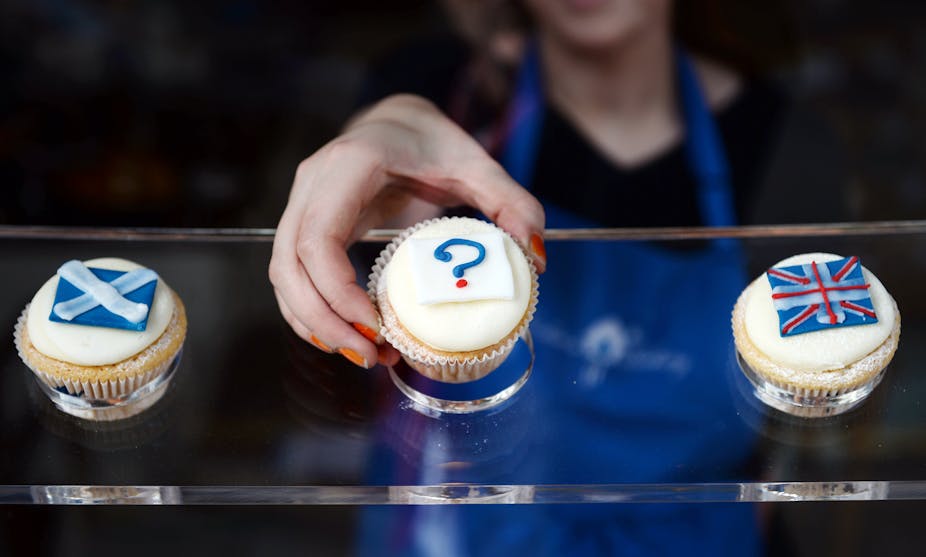I really thought we might make it. We’d got past the publication of YouGov’s potentially constitution-changing poll showing a minuscule lead for the Yes campaign without anyone grabbing for an easy headline by calling for opinion polls to be banned in the run-up to elections and referendums.
Less than two days to go and still no political grandee had wheeled out the old arguments. But then, even at this effectively 13th hour, Baroness Boothroyd, the former House of Commons Speaker, just couldn’t stop herself. In an interview with The Independent, she explained her concerns.
The polls on the referendum are very confusing and contradictory. I am worried that they potentially could influence the outcome of the vote. I think the time has really come to do as the French do. We should ban them up to a week before polling day. Then people can make up their minds without all these confusing polls.
There’s so much to question about the reasoning in these five short sentences that it’s hard to know where to begin. Still, since Lady Boothroyd raised them, let’s start with the French – who don’t, in fact, do what she suggests. What they have, partly to accommodate early voting in French overseas territories, is a 32-hour period of electoral silence. During the period just before polling stations open at 8am on Sunday, electioneering generally, including the publication of opinion polls, is banned.
It’s true that, back in the 1990s, when the Baroness was Speaker, the French did have a week-long, pre-election day ban on the publication of polls. But, even in that Jurassic age of the internet, they had difficulty enforcing it, with Swiss newspapers and web sites publishing illicit poll results that were readily accessible across the border.
In 2001, though, this French farce was ended when the country’s highest judicial court ruled that it infringed Article 10.1 of the European Convention on Human Rights. Paraphrased, this states that freedom of expression includes freedom to hold opinions and to receive and impart information and ideas without interference by public authority, except where warranted by considerations such as national security, territorial integrity or public safety.
I guess it might be argued that territorial integrity is an issue here, but it’s hard to believe it’s quite what the Convention framers had in mind.
Many supposed that French ruling would fairly quickly end all such European bans, particularly in those countries where they conflicted with their own constitutions. But, presuming the Baroness doesn’t object to this particular curtailment of our freedoms, she will be encouraged by the fact that it didn’t.
Practices vary, in Europe as elsewhere, and, although they are in a minority, there are still plenty of banners around. Honduras appears to hold the world record, with a proclaimed 45-day embargo on the publication of poll findings before an election. This puts the Italians’ mere 15-day ban to shame, but they are the European record holders, particularly since the Greeks lifted their 15-day ban in advance of this year’s European parliamentary elections – again less on the grounds of its unconstitutionality than that the internet made it increasingly ridiculous.
Spain retains a five-day ban, but is about the only European country left with longer than a French-style period of electoral silence for supposedly sober and considered reflection.
Used properly, opinion polls help inform and enhance our democratic choice. It’s important to remember that they are representative snapshots of opinion, not election predictors – but they can be an important tool for measuring, and indeed telling politicians, what voters think about particular issues, parties and candidates.
Yes, of course they can influence our behaviour, especially in first-past-the-post elections, where their findings can enable us to vote tactically, rather than waste our vote on a candidate we know won’t win. But the obvious answer to that is to change the electoral system, not deprive us of the information to get at least something out of it.
There have been more than 50 polls relating to the independence referendum published since the start of the year. They have recorded the major opinion swings, have surely contributed massively to the extraordinary level of public interest and, as far as I am able to judge, the overwhelming majority have been rigorously conducted using genuinely statistically representative samples of almost always more than a thousand voters.
Certainly that is true of all the major pollsters, who, as members of the British Polling Council, report their sampling methods and sample sizes, their modes and dates of interviewing, the actual wording of questions asked and, most importantly, the margin we must allow any individual finding due to possible sampling error.
Ban the publication of these reputable polls and you’ll be left with the internet-transmitted findings of the disreputable ones. And, if you really want to ban something, how about party leaders unilaterally adding what amounts to a third question after postal ballots have been sent out and votes already cast? Now that really would be worthwhile.

